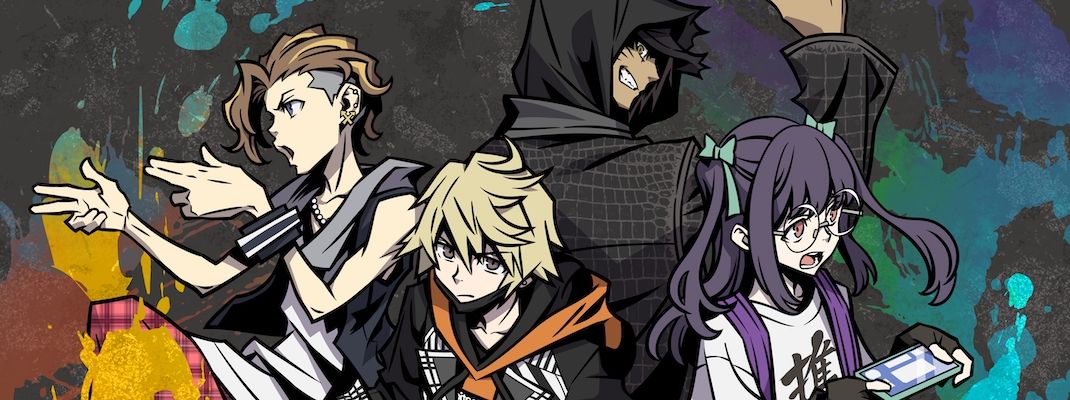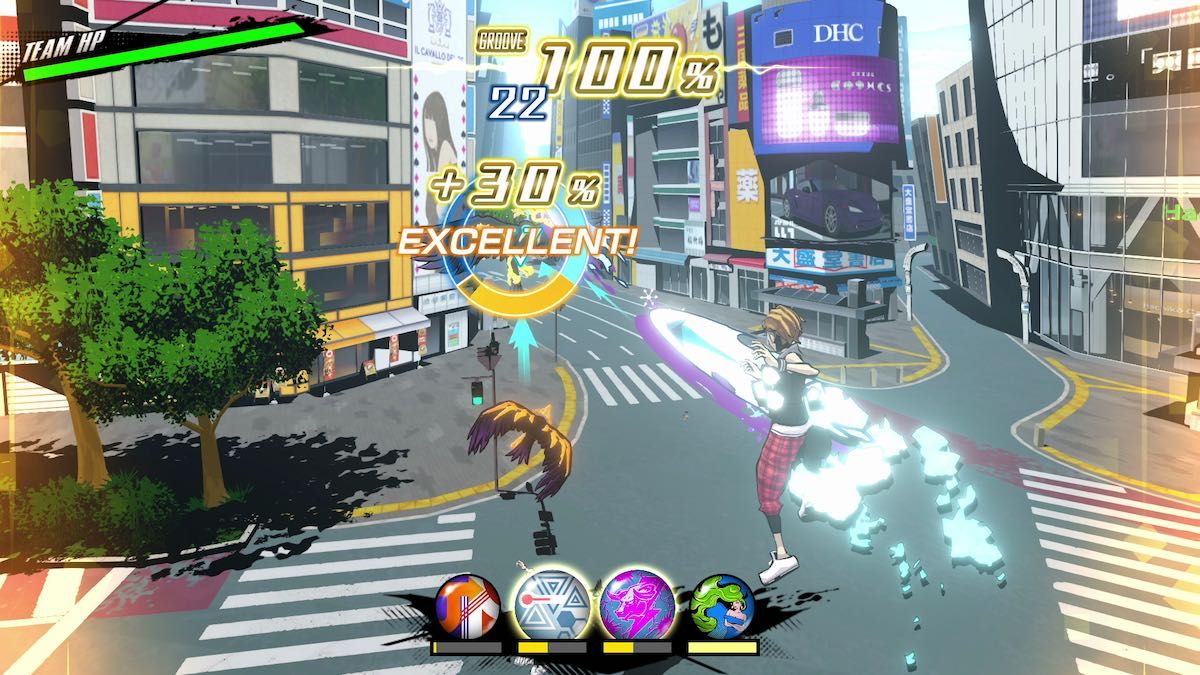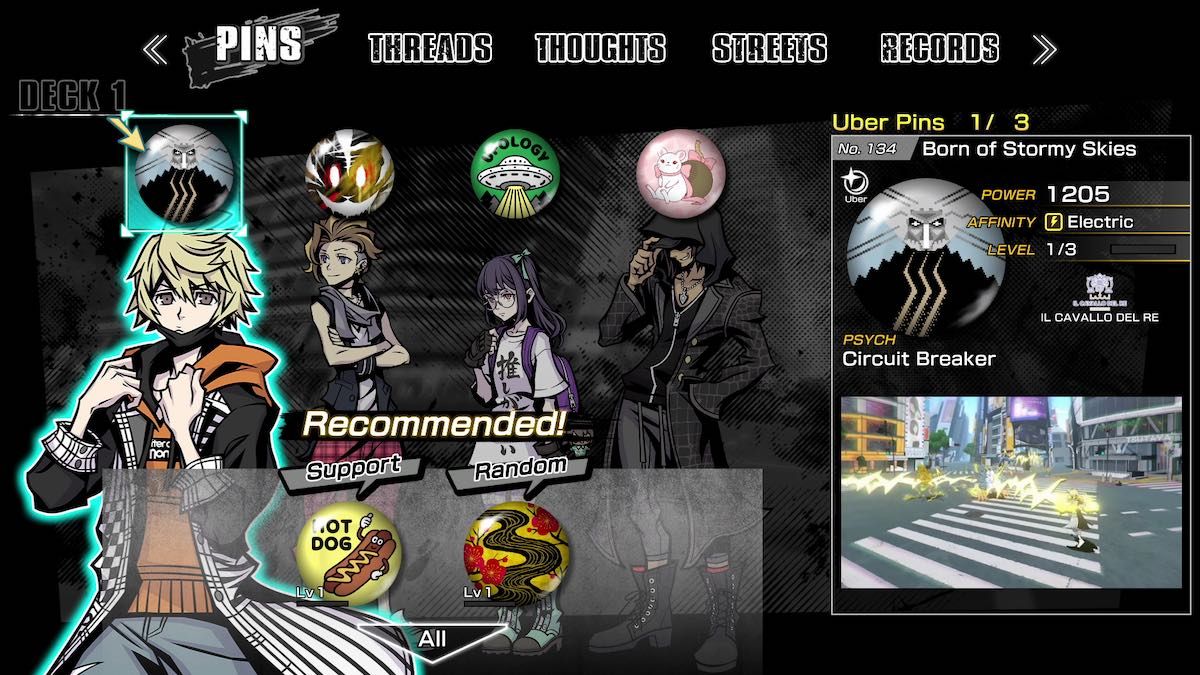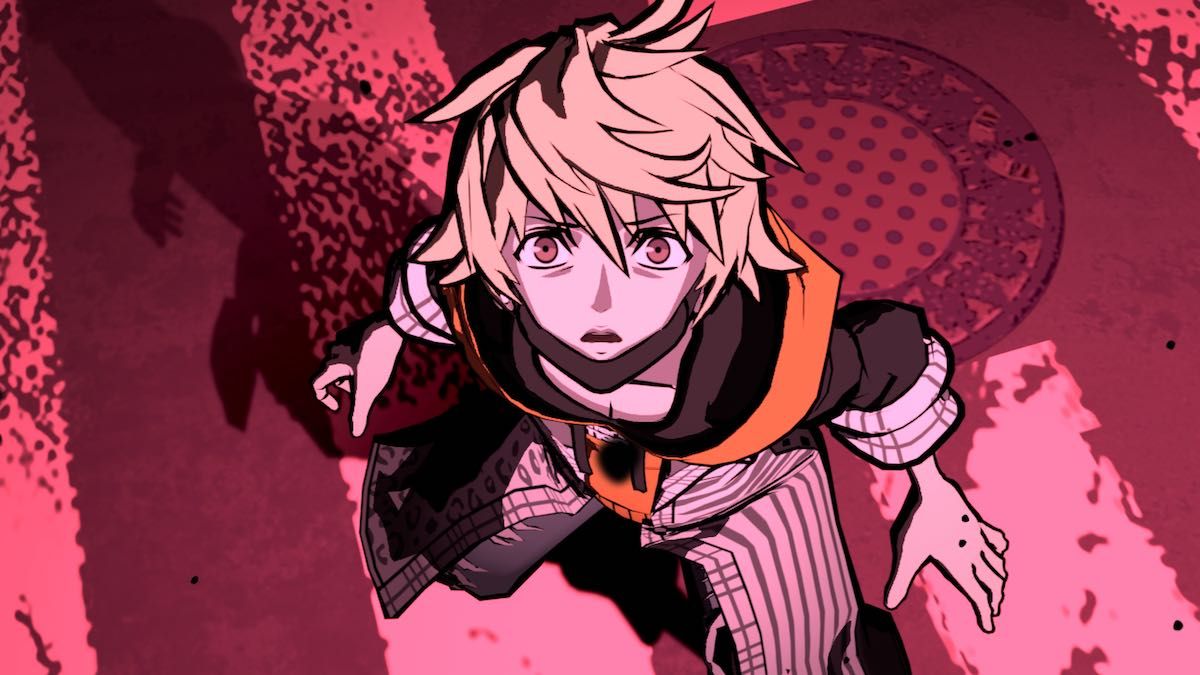Excluding any and all attempts on the first-party front, the list of genuinely creative and entertaining releases on any of Nintendo's what would be deemed "gimmick"-centric devices (specifically the Wii and Nintendo DS) has infamously been a small one. You'd be hard-pressed to find a game from any studio not under Nintendo's wing that utilized the budding, unique selling point of either of these machines in an interesting way. To say that this is but one of the highlights of 2007's The World Ends With You speaks volumes at just how on-point Square Enix's standalone action RPG was at the time. A game that quickly gained a cult following, if not for its touch-screen implementation of combat, then most certainly for its expressively-bombastic, modern-day aesthetic, catchy soundtrack and story that, most shockingly of all, found a way to weave its titular themes in a way that proved effective. Arguably one of the better examples of the "roll credits"-esque title drop in a game's narrative.
The World Ends With You for the DS was one of those rare moments where a game stood out so well, the concern wasn't so much the length of time one will painstakingly have to wait to get a sequel, but rather the internal debate on whether a sequel is even necessary? As justified many fans rightly are in clambering for a return to TWEWY's hectic Shibuya setting (or UG Shibuya, if you want to be specific here). Both aided and hindered in parts, by Square's passing-acknowledgment of the original's appeal -- from a dismayed mobile port announcement, to having its characters cross paths with fellow Square property Kingdom Hearts. To even the original game getting reconfigured for the Switch a few years ago. A refresher, one might conclude in the latter case, for what was to be unveiled (even if the 2018 port did lose some of the gameplay pull the DS' touch-screen brought) last November. A sequel that, even from its very naming, seemed to acknowledge the difficult circumstance on following-up a game that stands pretty well on its own. Enter NEO: The World Ends With You -- a whopping fourteen years on from the original...or one mainline, numbered Kingdom Hearts game, if you prefer.
Even from the very first word of its naming, NEO, there's a suggestion that the sequel is attempting some manner of a freshening itself up. But if there's any fear that the game is to undergo some radical redefining of what made the original so special in many people's eyes, those fears are quickly dispelled. Not because its alternative take on combat, or its soundtrack, are similarly fast-paced in putting our minds at ease, though we'll get to these in due course. But more so NEO feels like a time capsule of a former age. And given the irony that the original itself felt like a fond throw-back to some 90s indulgence on hip-cool, young excesses -- let alone the story takes place only a couple of years after the first game's tale concluded -- NEO is both uncannily yet understandably swift at settling back into the original's cel-shaded, exposited aesthetic. Even the now-three dimensional rendition of a Shibuya plunged into a new round of the Reaper's Game seldom feels like it struggles to fit into the mold. Yes, there are the occasionally low-resolution textures here and there -- and the wandering, nameless, faceless (quite literally) NPCs feel even more like background noise. And right on-cue the game is ready to exposit plot reasons as to some of the more intended design choices on the technical side.
But just as fans quickly climbatized to the setting and tone the original pitched, so too returning players and newcomers alike will get on-board with the general loop that governs a vast majority of NEO's run-time. An in-game seven day week in which main protagonist Rindo and his companions scout out the city district -- solving riddles, defeating eerily-supernatural foes dubbed "Noise" and eventually uncovering more and more of the conspiratorial background of the Reaper's Game itself. Butting heads with rival teams at points, though this predominantly is served through the lens of its narrative, rather than anything gameplay-wise the player has any real control over. As familiar this flow will be, not least to fans of the original, one element that is undeniably new is the change to combat.
Gone are the DS' touch-screen antics, replaced by a real-time focus on managing equipped Pins -- the game's interpretation of abilities that can range from melee strikes, projectiles, support traits like healing and many more. Just like its aesthetic, it becomes apparent surprisingly early on that there's rhyme and reason to this style of combat. One of them stems from the fact that management of each of your pin's cool-downs are the key to succeeding in battles. While players can get by in early encounters, by simply spamming any or all the corresponding buttons tied to their associated pins, it's not long before building up your Groove meter (an indicator of how well you can combo alternating attacks) on top of deciding how much to use of a given attack becomes the focus. Despite how chaotic and weird it can get seeing characters aimlessly flying/levitating/sprinting about a given arena -- as if the game is bugging out -- NEO makes sure to divert focus back at managing one's arsenal. It may not have the charm or the surprise spectacle of the original's touch-screen interface, but it's a system that finds the right ways to encourage players to synergise attacks and alternate to the point it becomes natural.
Once again, NEO's decision to focus on collectible pins as a means of bettering capabilities is both smart and addictive to properly get into beyond simply its collectible namesake. Figuring out which pins to grind to attain higher levels, which pins to swap out for those with elemental affinities and even deciding what category of attack (along with corresponding buttons) to use. It was a surprisingly deep and worthwhile system to indulge in with the original game and NEO brings this back in a deservedly-rich fashion. Even common RPG traits like leveling up stats are left to optionally investing in the many eateries and restaurants scattered about Shibuya. A few instances of arriving at a critical story point under-levelled aside, NEO does manage to strike the right balance of natural level progression. Another mark in the game's favor when encouraging players to slowly-but-surely get a better handle on what the experience is providing without necessarily forcing them to detour too far from the main story beats.
So let's talk briefly about the soundtrack: another instance where the game seems to have sprung from out its seeming time capsule like a coiled jack-in-the-box. Delivering yet another far-flung assembly of tracks that sound befitting of the cultural period it's evoking, but maintaining all of the original's record-time ability at becoming instant ear-worms. Another fear that the demo released last month would imbue a suggestion of the game off-loading its best offerings in the first hour or so quickly quashed. Highlights like "Storm," "Unconscious" and "Your Ocean" finding little difficulty fusing appealing guitar riffs with easy-to-bellow-back lyrics. The music shouldn't be as infectious to sing along to or consistently as successful in transitioning from one engaging beat or rhythm to the next, but NEO constantly finds the way and the means to impress over and over. Tracks you're more than happy to have the game cycle through on repeat on your frequent hopping in and out of the options menu. It's genuinely surprising, but delightful all the same, that after more than a decade, TWEWY's knack for a soundtrack as varied but hard-hitting as this is not lost. Even the remixed or touched up versions of tracks like "Calling" present in the original are a welcome bonus.
For all its style and show of personality, it would be a stretch to say NEO's faults by comparison are down to such excesses. But at the same time, to claim the regular motions of the weekly tasks to complete are as accomplished as its combat or its soundtrack would be to downplay some of the frustrations that linger. As noted, beyond combat, most gameplay revolves around solving riddles and meeting certain requirements so as to activate currently-sealed entryways to other parts of the city. Despite NEO's efforts to incorporate some new-fangled interpretations of puzzle-solving -- namely Rindo's ability to time-travel and hop back-and-forth between periods of that given day -- it's sadly not the most effective or even enjoyable of new inclusions. Mainly down to the fact that the game's interpretation of a time-travel mechanic (and the probable gameplay implications this may suggest) feels little more than a means to pad out a given objective. Something of which the game is guilty of one too many times.
Closing Comments:
Though there may be a whopping fourteen year gap between the first and second game, NEO: The World Ends With You makes easy work of slipping into the role of seemingly-direct follow-up to the events prior. Identifying and in some cases re-tooling what made the 2007 DS outing such a surprise hit to begin with. Whether through its re-purposing of combat or continuing that same energetic excess in both its aesthetic and stellar soundtrack, there's plenty here for fans of the original to latch onto. Some gameplay elements admittedly don't fit as well into the mold -- the game, like any JRPG, occasionally getting too indulgent in its seemingly-obligatory padding out of time. Likewise, those who may have been quick to pick out the repetitiveness of mission structure prior may be disappointed to learn the sequel does little to shake up that formulaic progression. Even so, minor grievances aside, NEO: The World Ends With You -- for all its flash, its flair and many a sing-a-long moment -- does a wonderful job at encapsulating the original's true strengths where and when it matters most.




